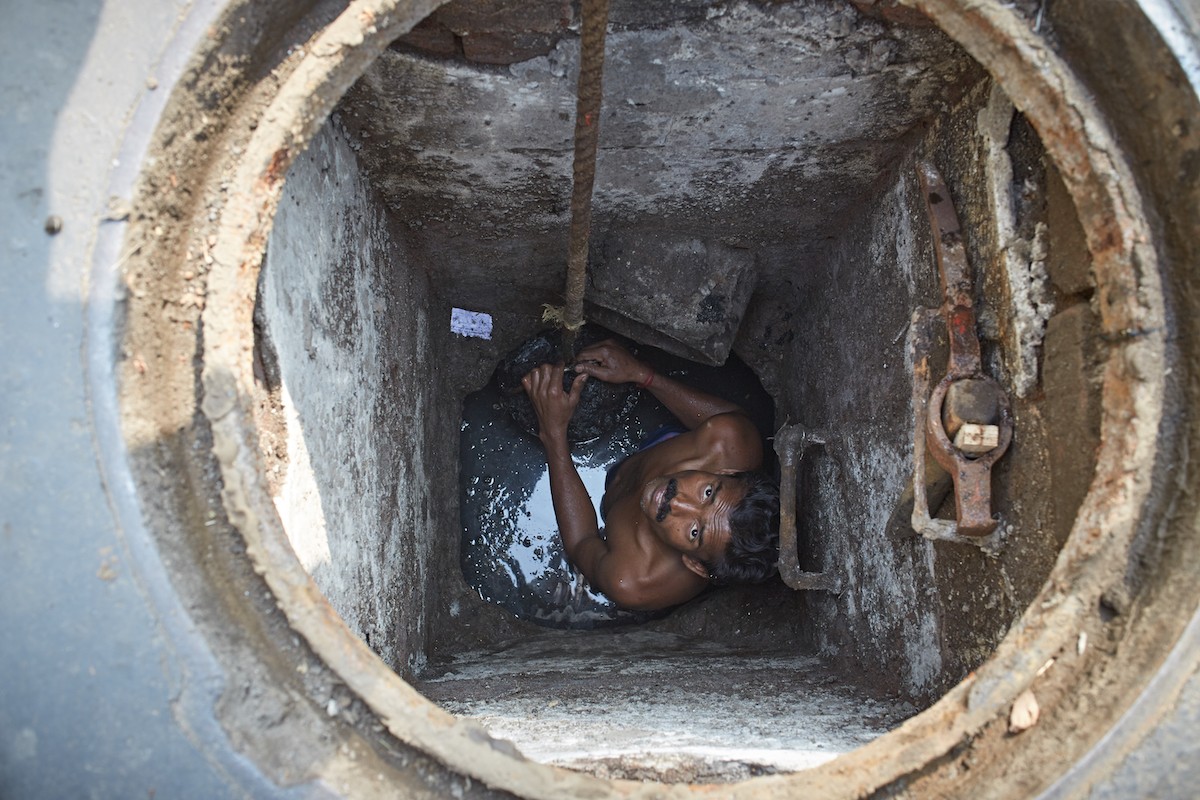The Indian government has indicated it will attempt to end the already outlawed use of caste-based laborers who manually remove untreated human waste in degrading and sometimes dangerous situations.
India’s Finance Minister Nirmala Sitharaman said the government is determined to halt the manual cleaning of sewer systems and septic tanks, a practice outlawed in 1993.
“Special efforts to eradicate manual scavenging through mechanization shall be undertaken,” Sitharaman said on Feb. 1 while presenting the national budget for 2020-2021.
It is currently unclear how much of the budget will go towards measures to help end so-called manual scavenging and improve India’s sewerage system.
Despite the prohibition, manual scavenging persists in most parts of the country.
A manual scavenger collects human waste, cleans drains, removes animal carcasses, and handles other household refuse. As many manual scavengers work with their bare hands, they are often at risk of contracting infections and diseases.
Manual scavengers are often treated as outcasts, facing discrimination and other hardships on account of their work. Most manual scavengers come from India’s Dalit (formerly the untouchable caste) community.
According to government data, 201 million of India’s 1.2 billion people belong to this socially deprived group.
A government survey found 54,130 people were engaged in manual scavenging as of July 2019.
The actual number, however, is likely higher, as the study was only conducted in areas where “there are reasons to believe [in] the existence of manual scavengers.”
The survey was carried out in 170 districts in 18 of India’s 29 states.
Deaths
Some 814 manual scavengers deaths were recorded in India from 1993 to July 2019 in 20 states and federally administered territories.
Mukesh Nayak, a 41-year-old manual scavenger from the eastern Indian state of Odisha, told LiCAS.news he supported Sitharaman’s announcement to abolish manual scavenging.
“We need to have decent work with dignity,” he said, adding he hoped the end of such work “would really benefit people like us.”
John Dayal, a social activist and journalist, however, was not as optimistic.
“Manual scavenging will end when the caste system ends in the country,” Dayal told LiCAS.news.
“Even railways continue it because they do not want to change social habits,” he said. “They do not want to spend the money needed to build not only toilets, but the sewage systems] required, along with the electricity needed to give light at night.”
Several non-governmental organizations (NGOs) such as Jan Sahas Social Development Society, Madhya Pradesh, and Central India have been working to help manual scavengers.
“Manual scavenging is a national shame. It has no place in this country,” said Ashif Shaikh, founder of Jan Sahas, which works to end discrimination and unjust practices across India.
Over the last nine years, Shaikh said his NGO has rescued and rehabilitated 41,000 people working as manual scavengers or bonded laborers.






